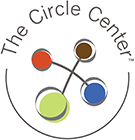ABOUT US
ABOUT US
The Circle Center is a professional consulting and training company based in Nashville, Tennessee and serving companies and organizations nationwide.
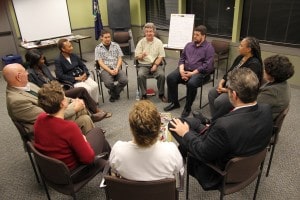
Why did we create the Circle Center?
We created the Circle Center out of a passion and desire to create spaces where everyone’s voice could be heard. Many times in groups, workplaces and communities, only a few people get to speak their mind, and they’re usually the loudest or the ones with the most authority. Circle intentionally creates spaces where everyone has an opportunity to speak on a variety of topics. As empathy and trust is created, what emerges is the fact that we are more alike than different and Circle allows these likenesses to be acknowledged, embraced and celebrated. What we want to create in general is workplaces where everyone gets to know each other on deeper levels, beyond titles and salaries, creating deeper bonds and feelings of belonging, so people feel more connected with each other and to the mission and vision of the organization.
CLICK HERE TO CONTACT US
OUR APPROACH
Lots of businesses name themselves after their founders. Others go for something flashier in an attempt to make their organization more memorable.
And hey, we’re cool with that.
But when we were selecting the name for our business, we knew nothing could be more important than our unique Circle approach. With every ounce of our being, we believe in it. When you contact us for more information, you’ll see we live by it.
Unfamiliar with our Circle method? No problem. We’ve broken down the basic questions below.
What are circles?
Since ancient times, people have been sitting in Circle to discuss difficult and emotional issues. They’ve also come together in Circle to reflect and celebrate various occasions and individuals.
Through the many uses of Circle, one common thread is recognized: community. Through the recognition and participation in Circle, your community can deepen its level of trust and understanding. Circles can be used in situations ranging from decision-making following criminal behavior to appreciation-showing when a community member is moving on.
In all its manifestations, the Circle process gets to the heart of two questions:
How are we going to be with each other?
and
How can we be with each other in a good way?
Why circles?
Circles create a safe environment where people who don’t normally voice their thoughts begin to speak, and people who normally monopolize the conversation begin to listen. In Circle, everyone’s voice is important to the process. Job title, expertise, education and age have no bearing on who gets to speak and who is invited to listen. While it can take time to build enough trust and safety to create a Circle where everyone feels their voice is equal, our experience has shown us that authentic dialogue nearly always occurs when it’s framed properly. When honest communication is facilitated in Circle, harmful insulation of top-level managers is avoided, and all feel empowered to make valuable contributions.
How are they used?
While no two Circles are the same, we’ve developed several genres of human-focused Circles which most of our clients find useful over the course of our involvement.
We use Circle to…
To build community–
The purpose of a Community-Building Circle is to create bonds and build relationships among a group of people who have a shared interest. Community-Building Circles support effective collective action and mutual responsibility.
To resolve conflict –
A Conflict Circle brings together disputing parties to resolve their differences. Resolution takes shape through a consensus agreement.
To celebrate and honor–
Celebration Circles bring together a group of people to recognize an individual or a group and to share joy and a sense of accomplishment.
To talk –
In a Talking Circle, participants explore a particular issue or topic from many different perspectives. Talking Circles do not attempt to reach consensus on an issue. All voices are respectfully heard, and a range of perspectives are offered in order to stimulate reflections.
To understand –
A Circle of Understanding focuses on contemplating on some aspect of a conflict or difficult situation. A Circle of Understanding does not usually seek to reach a consensus. Its purpose is to develop a more complete picture of the context or reason for a particular event or behavior.
To heal –
The purpose of a Healing Circle is to share the pain of a person or group who has experienced trauma or loss. A plan for support beyond the Circle may emerge from the Healing Circle, but is not required.
To sentence –
A Sentencing Circle is a community-directed process, in partnership with the criminal justice system, for involving all those affected by an offense in deciding an appropriate sentencing plan which addresses the concerns of all participants.
To support –
A Support Circle brings together key people to support a person through a particular difficulty or major change in life. Support Circles often meet regularly over a period of time. By consensus, Support Circles may develop agreements or plans, but sometimes they do not intend to make decisions.
What can I expect?
If you’ve already participated in our Circles, you’ll remember each of the following features. If you haven’t, browse this list to have a better idea of what to expect in your first Circle meeting.
Establishment of keepers: A Circle “keeper” is someone who has participated in Circle before or has been trained in the Circle process. A Circle may have more than one keeper, depending on its size. Keepers are responsible for guiding participants and creating and maintaining Circle as a sacred and safe place.
Development of a clear purpose: The purpose and vision behind holding Circle is important. Circles can be held for many different reasons. Some Circles will be a one-time Circle in order to show appreciation for a departing co-worker. Other Circles may go on throughout a year for community-building purposes.
Structured time frame: Circles cannot be held in a hurry or in a way that creates frustration and anxiety for people with busy schedules. It is very important to set distinct time limits to the Circle process and to honor the process by starting on time and ending on time.
Use of a talking piece: A talking piece is used to encourage respect between participants and to denote whose turn it is to speak (and just as important, whose turn it is to listen). The talking piece is passed from person to person. If someone decides they have nothing to say, they simply pass. They have still participated by passing the talking piece.
Creation of guidelines: It is important for Circle participants to agree on Guidelines or Ways to Be. Guidelines are created by the Circle participants and implemented through consensus. Guidelines are a grounding tool in the Circle process.
An intentional beginning and end: Circle is a sacred space, and the time you spend in Circle is a way of honoring each other. It is important to open Circle in a positive way, often by a poem, quote or meditation. This marks the meeting as a special and sacred time set apart from “business as usual.” It is also crucial to close Circle in a good way, honoring and acknowledging the process and the participants who were present.
OUR TEAM
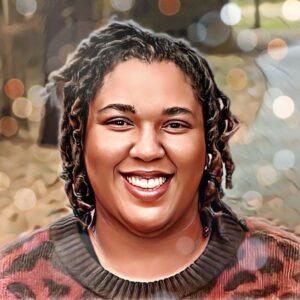
Adrianna Carter, LMSW, Circle Facilitator
Adrianna Carter is driven by a passion for creating and supporting safe spaces and systemic change. In addition to facilitating community groups at the Circle Center, Adrianna most recently served as Program Coordinator of the Mayor’s Youth Council and WeGo Public Transit Youth Action Team at the Oasis Center in

Allison Hill, MSW, Circle Facilitator
Allison graduated from the Nashville campus of the University of Tennessee-Knoxville in 2015 with her Master of Science in Social Work. The program opened doors for her to intern with the Nashville Children’s Alliance and the Sexual Assault Center, both of which serve victim/survivors of trauma and their caregivers. Through

Ashiya Swan, Circle Facilitator & Resilience Coach
Ashiya Swan has merged her skills as a yoga instructor, holistic life coach and circle facilitator to provide individualized and group services for personal and professional expansion. Her approach to self-care and stress management supports team building and improves the culture of the workplace. Ashiya also uses yoga as the
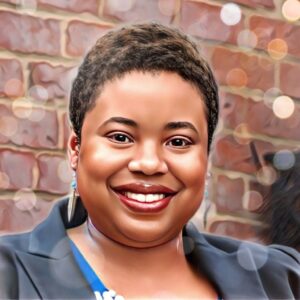
Briana Perry, Circle Facilitator & Mediator
Briana Perry is a facilitator, organizer, and advocate originally from Memphis, Tennessee. She received her B.A. in Sociology and Women’s and Gender Studies in 2013 from Vanderbilt University. In 2016, she completed her M.Ed. in Learning, Diversity, and Urban Studies at Vanderbilt University, Peabody College. Before starting a career in

Cameron Clark, LCSW, P-SEP, ERYT, Circle Facilitator
Cameron Clark, is a therapist, somatic experiencing practitioner, yoga instructor and Circle facilitator in Nashville, TN. Cameron specializes in trauma resolution, resiliency building and utilizing mindfulness and embodiment practices to support individual and community wellbeing. Cameron values playfulness and authenticity, incorporating these practices into everything she does. Prior to opening
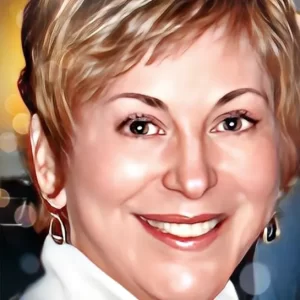
Gail G. Southwell, Ph.D., PCC, BCC Executive Leadership Coach
Gail is an executive coach and training consultant with a specialty in developing leaders to accomplish meaningful and quantifiable objectives that align to organizational goals. Gail retired from Ford Motor Credit Company as Director of Human Resources, Global Operations Team and has over 30-years experience in corporate, manufacturing and the

Gert Comfrey, Circle Facilitator
gert comfrey does facilitation and healing labor at the Estuary of psychotherapy, community organizing, and spiritual care. gert is a therapist in private practice, as well as a Circle facilitator and continuing education trainer. Their work is deeply informed by their participation in intersectional liberation movements, as well as by
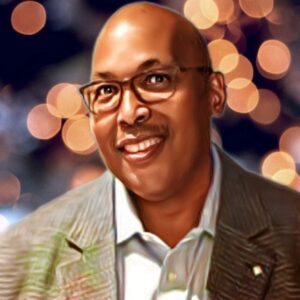
Grover Hardin, ACC, Circle Facilitator, Consultant & Coach
With over 30 years of Military and Corporate experience, Grover Hardin has a proven history as a Corporate Operations Executive with a passion for helping leaders and organizations accelerate their growth and exceed their business objectives. Grover’s goal through executive coaching and leadership development is to support transformational breakthroughs for
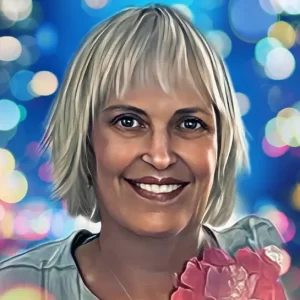
Jane Fleishman
Jane brings more than 40 years of experience and practice in the non-profit sector. Much of Jane’s work with groups and individuals has been directed toward creating spaces and opportunities for young people to discover their potential by engaging in service and leadership. Jane is passionate about the power of
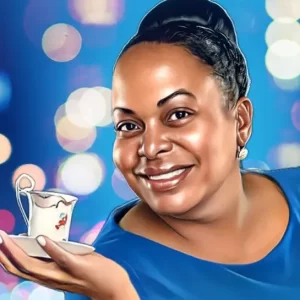
Janet Walsh
Janet Walsh, founder of Nashville based Tea, Tea & Company, is a well-known convener of conversations that make a difference. Blessed with the gift of sitting, with both the living and the dying, Janet has served families and communities for decades through hospital, in-home, grief, and bereavement sitting. Having lost

Jeff Darnell, Circle Facilitator & Coach
Jeff Darnell cultivates spaces for courageous people to show up, connect, and grow. As his tools, he uses words and stories, active listening, and engaged intuition. His story includes leadership roles as a camp staff and nonprofit program director, a coach, an educator, and a pastor. He facilitates groups and
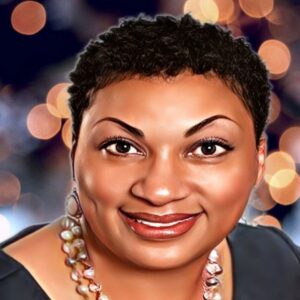
Joy Johnson-Carruthers, Circle Facilitator, Coach, Trainer & Consultant
Joy Johnson-Carruthers is a consultant, trainer, and group facilitator dedicated to helping clients apply diversity, equity, and inclusion strategies that make a difference. A former police officer and US Army Veteran, Joy’s expansive career in the public and private sector make her a sought-after Public Speaker, HR Consultant, Master Facilitator,
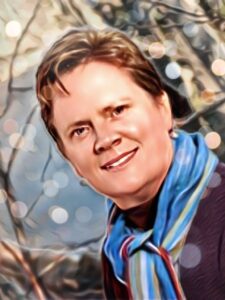
Kim Ewell, ACC, Circle Facilitator & Coach
Kim Ewell has been a life and leadership coach since 2010. She brings a holistic view, positive regard and mindfulness-based attention to her coaching sessions. Her passion is helping people develop awareness of their inner wisdom and perspective so they can build a balanced and sustainable way of being in

Leigh Ann Roberts, PCC, JD, Co-Founder & VP,
Coach, Consultant & Facilitator
Leigh Ann, co-founder of Circle Center Consulting, LLC, brings a vast array of experience and practice to the Circle Center. Leigh Ann completed her undergraduate and law degrees at the University of Mississippi where she met Tracy, her husband, business partner and co-founder of the Circle Center. Having served as
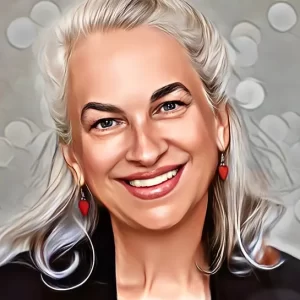
Mary Agee
Mary Agee is a heart-centered practitioner who weaves mindfulness into all of her work with clients. She is experienced in a wide range of trainings based on social and emotional intelligence from several internationally known programs, including Mindful Schools (based in Oakland), The Mindfulness In Schools Project “dot b” curriculum

Noah Spiegel
Noah is an experienced nonprofit leader, executive, coach, and consultant who brings a twenty-five-year track record of successful leadership and results to each client’s project. Born in Brooklyn, NY, he grew up in Portland, ME, and moved to Nashville in 2012. He started his career as a stage manager for
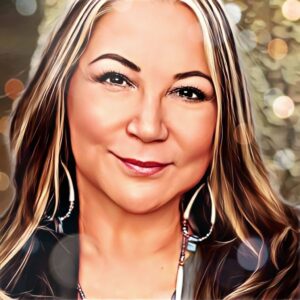
Sue Williamson, Circle Facilitator
Susan Williamson is Inupiaq Yupik Alaska Native. Raised in the lower 48 with her military family, Sue grew up at the last tour of duty in Sacramento California. Sue is active in many communities which was modeled well to her by her parents. Sue has been part of the Circle

Tracy Roberts, CEO & Co-Founder
Tracy Roberts, founding member of Circle Center Consulting, LLC, has been facilitating group process in different settings, organizations and programs his entire career. Tracy is passionate about helping groups create meaningful community with integrity as they discuss, explore and address important issues and work together. Tracy has been a dedicated
